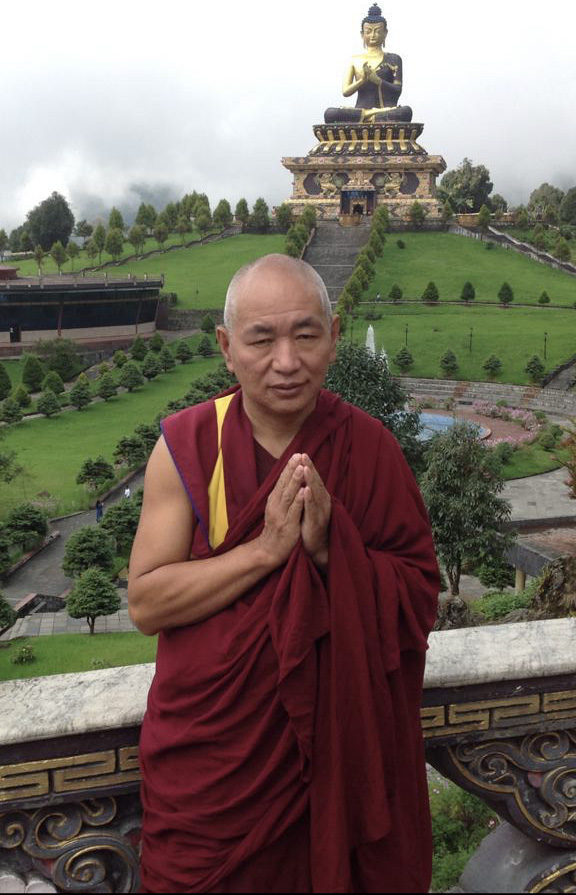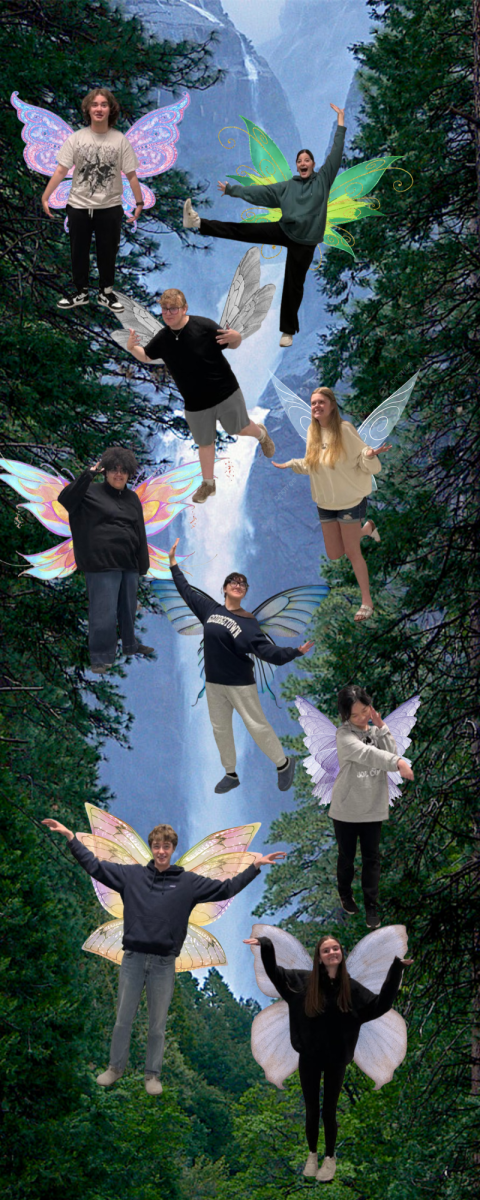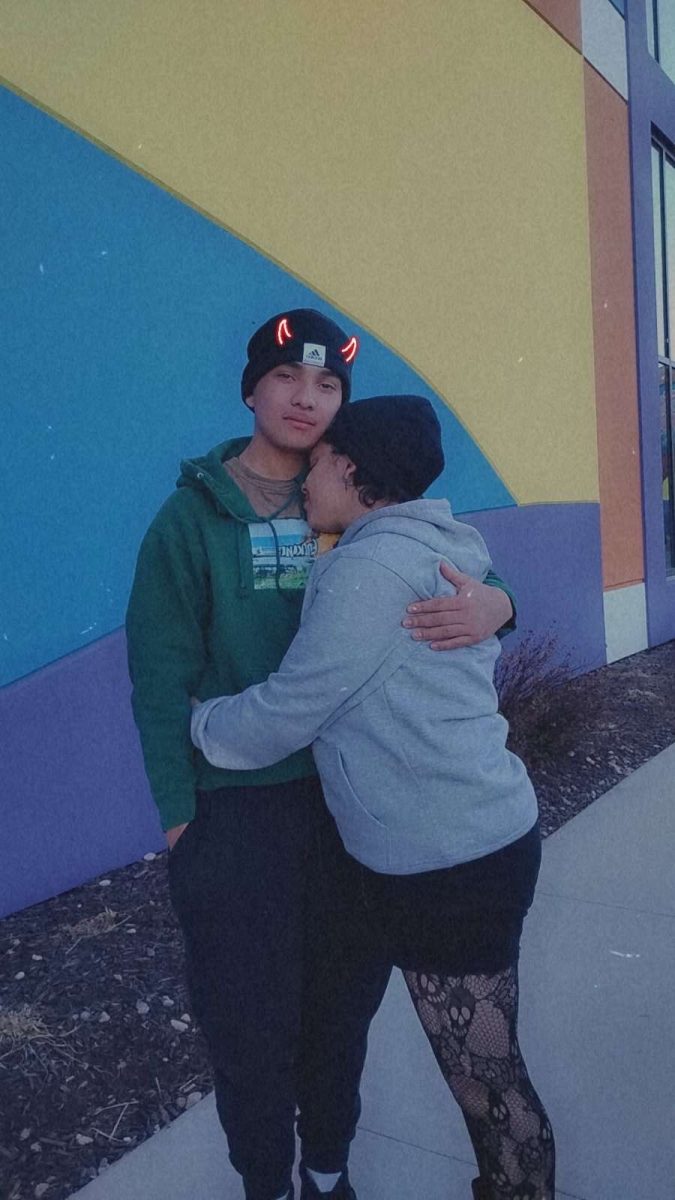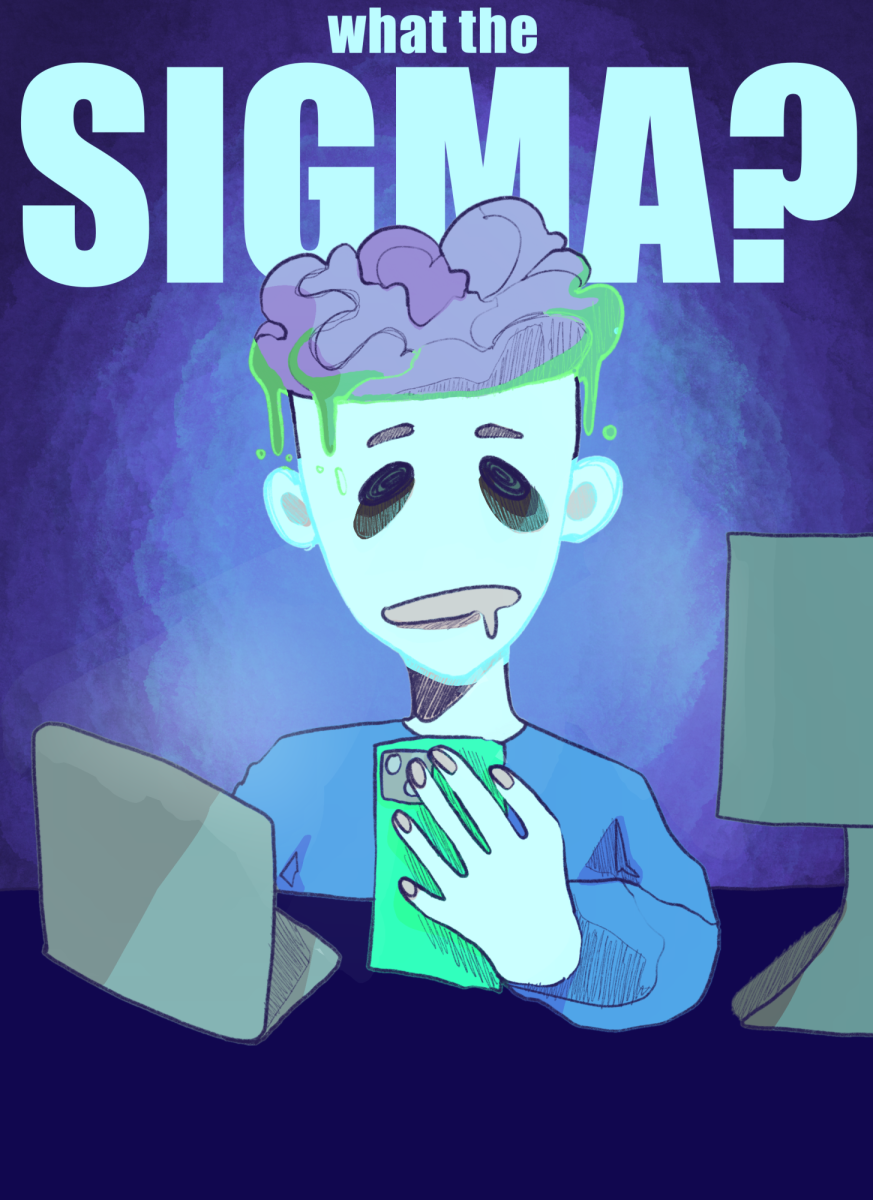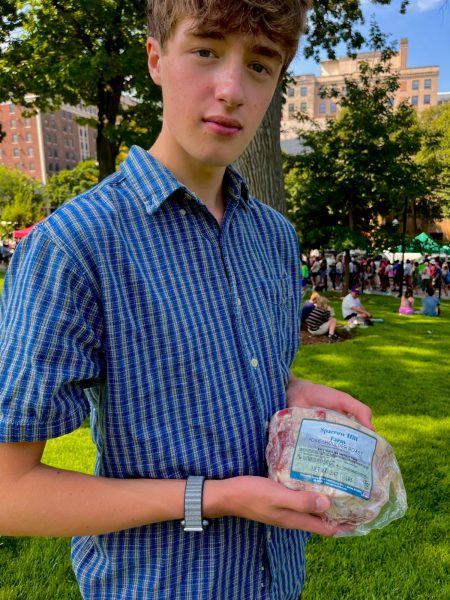Nearly every aspect of the world around us is influenced by organized religion. Many historians credit Hinduism as the oldest religion in the world, dating back over three thousand years to the ancient Indus River Valley in modern-day India.
Although there are over 4000 practicing religions across the globe, just four religions account for over ¾ of all religious individuals, and 16.3% self-identify as unaffiliated, according to the Pew Research Center. This means that of the billions of religious people across the world, nearly all fall into just a few groups, what we know as organized religions.
Organized religion has been a monumental force in creating social and economic norms worldwide. Historically, many states were ruled by religious rulers or theocrats who used their religion to guide their rule. Some nations are still active in theocracies, such as Iran, Afghanistan and the Holy See.
Wisconsin’s religious makeup is relatively homogeneous; 71% of adults identify as Christians. Here in Dane County, religious diversity is everywhere, not just in the types of religion practiced but also in differing relationships and views of the good and harm that organized religion has on our communities.
Faith at SHS
When it comes to faith and religion, students at SHS all utilize their different ideologies to help them through their day-to-day lives. Many students even form extracurricular groups such as the Fellowship of Christian Athletes (FCA), a Christian-athlete group that meets regularly to discuss their faith and how that makes them a better athlete.
Mikayla Becker, a junior at SHS is a practicing Christian and has faith intertwined in her life every day.
“I think something this year that’s been really fun for me is starting to teach Sunday school [at my church]. I’ve never done it before, but to get to see kids ask questions and have their own opinions is really sweet. Being able to be involved in my church community is something that I really love. Just like being able to feel like I’m doing something good,” Becker said.
“School has definitely affected the way I think about church. One of the first things that I questioned when I was in seventh grade, [when] I learned how old our planet is,” Becker said.
She then describes how she chose to balance out what she has learned at church with what she has learned at school. “I then went to my pastor, and I said to my pastor I think the creation story is a metaphor.”
Not only has her education influenced her faith, but her faith has also influenced her education.
“[Religion] also influenced my college choice. I want to go to a Christian school so I can have that kind of backbone and a little bit of familiarity when I’m going off to a new place. That way I have something that can ground me.”
Another student at SHS, sophomore Ethan Mowry also has a variety of experiences with his faith. “There’s a couple [different religions] in my family, my mom’s Catholic and my dad is Protestant, but then we have Jewish traditions as well.”
“Growing up in a faith based household, there’s a lot more religion attached to morals, but I think that morals present in all households, regardless of religion.”
“Whether someone’s religious or not, they can still be taught how to behave as a good person, but I definitely think some of the principles and like the teachings [of religions] can be good guides, regardless of what religion.”
Coming from a religiously diverse household, Mowry has lots of fond memories growing up, “I have a lot of Hanukkah traditions, like playing with dreidels at my grandma’s when I was younger. I think it’s definitely been cool seeing my siblings be given tons of purpose. I know people can find purpose no matter what, but it’s just definitely cool seeing people find it through religion.”
“I’m ethnically Jewish, but I’m not necessarily fully Jewish but I definitely do a lot of the traditions. I intend on eventually doing that [converting to Judaism], but just because the way things are being born in a household that’s not fully Jewish, you have to undergo a full process,” Mowry said.
When looking at how his faith has affected his worldview, Mowry has experienced a lot of perspective. “As I grew up, I began understanding more things, not necessarily just religion, but how cultures were associated with it. I think it’s important to note that all world views are dependent on the person teaching them and they’re subjective. There’s a lot of different ways of looking at the world.”
Islamic Center of Madison
Wisconsin is home to over 70,000 Muslims and 23 different Mosques spread across the state. The Islamic Center of Madison is one of three Mosques in Madison that allows practicing Muslims to engage in their faith. The Islamic Center of Madison offers many different programs for the Muslim community and serves as a hub for the area’s Muslim community.
The Islamic Center of Madison’s original purpose was to offer UW-Madison students a place to safely and peacefully practice the five daily prayers, known as Salah, which are just one component of the pillars of Islam. The Islamic Center has since grown to offer a sense of community and belonging to individuals within Islam in a state otherwise surrounded by Christianity.
The center also offers a weekly Islamic School for Muslim children in the community, a food pantry to help combat food insecurity and monthly gatherings for Muslim women to discuss their faith in a shared setting. Former UW-Madison researcher Ibrahim Saeed serves as the President of the center.
“I was led to my role at the center by my belief that it is my duty as a Muslim to serve my community,” Saeed said. Saeed is a trained Iman at the center, the Islamic equivalent of a priest, pastor, or rabbi.
“I have various responsibilities at the center as an Imam and president of the organization. These include overseeing the overall operation of the center, leading the daily prayers and giving the Friday sermon. In addition, I officiate over marriages and take care of burials of Muslims who pass away,” Saeed said.
The Islamic Center of Madison acts as a community center for the small Muslim community in Madison and its surrounding communities, but also as a resource for the university faculty, researchers and students looking to explore the Islamic faith.
“The Islamic Center is a house of worship for Muslims where people come and perform their five daily prayers and Friday prayer. It also provides educational, cultural and social activities. The center has a large library as a resource for UW-Madison researchers and students. The center has a food pantry that provides food for needy people irrespective of their religious belief,” Saeed said.
As Saeed mentioned, one of the most important roles of the center is a location to pray. Muslims pray five times a day to show their respect and thankfulness to Allah. These prayers are a sacred practice for Muslims and the center offers appropriate accommodations that are missing in many other public buildings throughout Madison.
Despite Islam being the fastest-growing religion throughout the world, the religion still faces many challenges globally and locally.
Saeed points to an increase in discrimination as one of the main challenges Muslims who attend the center face in their daily lives.
“Islam and Muslims are faced by the issue of Islamophobia where misinformation is widely spread about the religion and its adherents. Muslims are countering that through education of the public and through being good citizens and good Muslims,” Saeed said.
Many human rights experts point to the war in Gaza as the cause for a rapidly growing anti-muslim sentiment throughout the United States and across the globe. 2023 set an all-time high for reported discrimination complaints totaling 8,061 in 2023, a 56% rise from 2022; this figure set a 30-year record since the Council on American-Islamic Relations measured this data.
These complaints include the fatal stabbing of a six-year-old Palestinian boy in Illinois, the shooting of three students of Palestinian descent in Vermont and the stabbing of a Palestinian-American man in Texas. All of these events took place within six months of Hammas’ invasion of Israel in October 2023.
Saeed acknowledges the ongoing war has been a challenge for the Muslim community in Madison and across the globe.
“The war in Gaza is a painful and sad situation that affects and challenges the human consciousness. We believe the two-country solution is the only way out of this recurring dilemma,” Saeed said.
No matter how divisive politics may be, Saeed explains the Islamic Center of Madison is committed to fulfilling their mission of education, acceptance and community engagement.
“Our group promotes the religion through interfaith dialogues and activities and through open house events and information tables at public events,” Saeed said.
Despite the many challenges they face, the Islamic Center of Madison is committed to supporting the Muslim community in Madison and ensuring they are comfortable and safe to practice their religion as they wish.
Deer Park Buddhist Center
In 1979 Geshe Lhundub Sopa founded the Deer Park Buddhist Center in Oregon, WI. Deer Park is one of Wisconsin’s largest and most active Buddhists temples. Deer Park is a Tibetan Buddhist monastery committed to the teaching of Buddhism and the Tibetan way of life.
Deer Park was founded in collaboration between Sopa and UW-Madson. Sopa entered the Ganden Chokhor Monastery in Shang, Tibet in 1931 when he was just eight years old. Following the 1959 communist Chinese invasion of Tibet, Sopa was forced to travel across the Himalayan mountains into India where he was able to practice his religion. Years later the Dalai Lama (the highest spiritual leader and head of Tibetan Buddhism) asked Sopa to move to the United States to learn English and share his vision of global human values and ethics.
After arriving in the United States, Sopa began teaching at UW-Madison as an assistant teaching classical Tibetan language for Professor Richard Robinson who had previously started a Buddhist Study Program at the University. Sopa eventually worked his way up becoming a full time professor; he retired in 1997 after teaching thousands of UW students and traveling to over 19 counties.
In 1979, at the request of Sopa, the Dalai Lama made his first visit to the United States. During this visit, Sopa formally requested His Holiness to bestow the first Kalachakra empowerment for world peace in the West, which had never been performed outside of Tibet or India. In 1981, a parcel of land was purchased in Oregon, Wisconsin for the purpose of hosting the Kalachakra empowerment. This land would later become what is known today as Deer Park Buddhist Center. Geshe Sopa has continued to facilitate an ongoing relationship with His Holiness the Dalai Lama.The Dalia Lama has made eight additional visits to Deer Park Buddhist Center since.
Today, Deer Park has many opportunities for practicing Buddhists in the community as well as all individuals who want to learn more about Buddah and his teaching. Deer Park is home to Geshe Lhundup Jinpa and Geshe Tenzin Sherab who are both resident teachers at Deer Park.
Jinpa was raised in the Tsang region of Tibet where he became a monk in 1987. Jinpas chose to flee Tibet due to Chinese rule. Jinpa later arrived in southern India where he studied to receive his Geshe degree which many equate to a PhD in Tibetan Buddhism.
Jinpa arrived at the Deer Park Buddhist center in 2023 where he has been giving weekly teachings and engaging with members of the community since.
The Deer Park Buddhist Center had many opportunities for members of surrounding communities to get involved, primarily their twice a week teachings.
“Geshe Jinpa gives teachings on Thursday night while our other resident gives teachings on Sundays. But there are also various other roles on the side, Geshe Jinpa teaches a Tibetan class for people who are interested.” said Katrina Brooks who is a translator at the center and offered translation services for our interview.
The center’s role is not just with the Buddhist community, it’s teachings are welcome to members of all religions. In Fact the center acknowledges the importance of interfaith dialogue and involvement.
“As far as Geshe Jinpas role it’s really just to serve the community whoever that might be, a lot of that is the Tibetan community here in Madison, but then of course anyone else who is interested.” Brooks said.
Although Buddhism has a significant role in our world’s history, many still do not know the real teachings of the Buddah and practicing Buddhists today.
Jinpa shares his message and what he hopes people young and old will take away from the center’s presence right here within our community.
“When we first encounter Buddhism, it can be very overwhelming, but if there was one thing people could integrate into their lives it would be the essential teaching of not harming others (and if you can then benefit them) … we know what it feels like to experience difficulties and suffering so having identified that for ourselves, then look at all other beings and think that they are just the same. When we recognize what it’s like to feel that for ourselves then we shouldn’t inflict that upon others.”
Stoughton United Methodist Church
The Stoughton United Methodist Church (UMC) is one of over a dozen Christian churches here in Stoughton. The United Methodist Church has nearly 10 million active parishioners and 30,000 parishes.
“The founder of the church John Wesley famously bucked the system and preached to the people that were unwelcomed in church. At the time it was convicts, criminals, and coal miners,” said Kellen Roggenbuck the Pastor at Stoughton United Methodist Church.
Roggenbuck first got involved in the church when he heard of the church’s mission.
“It really connected deep down with me because I have always struggled with the way the church connects with people who are different,” Roggenbuck said.
The Stoughton United Methodist Church has a mission to be a church where all feel welcomed and safe to worship.
Roggenbuck explains that throughout his time as a pastor, he has worked to make faith more accessible and create a community for individuals to interact with like-minded people and feel accepted for who they are.
“My goal is for everyone to find a community; I would love for it to be our community, but community is at the center of my belief structure. We were not meant to be alone, we were not meant to be singular, but we are meant to be in a community. You will find a space here as long as you’re willing to come and be open to other people, then this is a place of tolerance, acceptance and celebration of who people are,” Roggenbuck said.
However accepting Roggenbuck tries to make his parish, many individuals still feel unwelcome in places of worship, leading them away from a life practicing religion.
The Pew Research Center shows that one in six Americans don’t subscribe to any organized religion and just 20% of Americans regularly attend church.
Roggenbuck partly blames the church’s inability to grow with the time for this figure. Despite a nationwide challenge, Roggenbuck is working at the local level to curve the trend.
“The greatest challenge facing the Christian church is a lack of relevance to emerging generations […] we’re working to find people who have not been a part of church, and so when they come into a space like our church that’s not the end of the conversation. They have to come and stay and feel engaged all the time. And so sometimes we have to abandon structures that have been so insular that they push people to the outside,” Roggenbuck said.
The United Methodist Church teaches its followers to live according to the teachings of god. Roggenbuck explains that living with empathy and acceptance is an important step to do so.
“We try to perceive the world in the way that God perceives the world. To see that there is divine respect and dignity in all people,” Roggenbuck said.
Roggenbuck encourages looking past the terms we label ourselves with, whether it’s regarding race, gender, sexual orientation, or political ideology, while still acknowledging the differences among us. “If we start looking at people beyond what we can reduce them to, we can be in a space to celebrate each other for being different.”
One of the most controversial topics of disagreement throughout organized religion as a whole is how faith communities interact with LGBTQ+ individuals. 73% of LGBTQ+ individuals feel as if “evangelical churches (like Stoughton United Methodist) are unfriendly toward them, about a fifth (21%) consider these churches neutral and just 3% say evangelical churches are friendly toward the lesbian, gay, bisexual and transgender population,” according to a Pew Research Center study.
Roggenbuck wants members of the LBGTQ+ community to know that there is a place for them within the Stoughton United Methodist Community.
“We want to be a place where all people feel welcomed, especially those who have been made to feel unwelcome in other churches,” Roggenbuck said.


